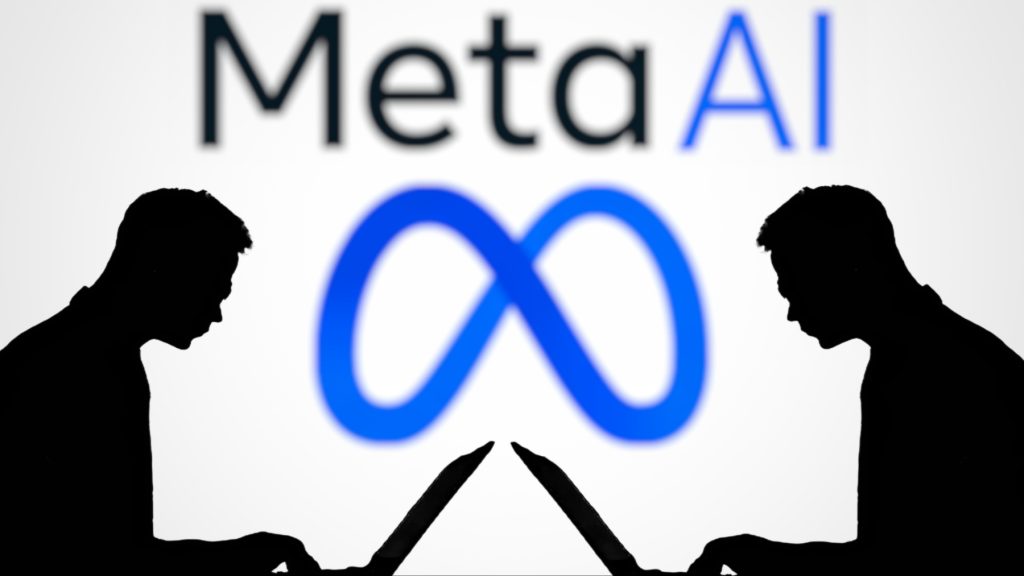
Meta has launched its AI tool ‘Meta Virtual Assistant’ across its three primary platforms that generate traffic: Facebook, Instagram, and WhatsApp, in a bid to rival ChatGPT.
It all began when Mark Zuckerberg envisioned a concept similar to X, which he dubbed ‘Threads.’ However, Threads failed to compete with X due to its lack of a defined identity. Transitioning from X, Zuckerberg decided to develop his own virtual assistant.
Meta’s Big Leap
The leap of Meta’s AI tool virtual assistant has set a new bar in the level of performance, including free-of-charge service, charting a course of superiority in areas such as reasoning, code generation, and creative writing. The intention behind the virtual assistant was to overshine tech giants like Google’s Gemini and OpenAI’s ChatGPT.
As users explore the freshly launched platform, they’re encouraged to test the assistant’s limits. From crafting packing lists to diving into 90s music trivia or aiding with homework, the possibilities are vast.
Meta’s ambitious move to democratize generative AI products challenges OpenAI’s dominance, prompting a substantial overhaul of their computational infrastructure, merging research and product teams.
Introducing the Llama models for developer use signals Meta’s bid to regain market share. However, concerns arise over potential misuse, despite the availability of a free option hindering competitors’ monetization efforts.
Meta emphasizes enhancing Llama 3’s coding capabilities, focusing on text output for now. Future iterations are expected to incorporate advanced reasoning and multimodal capabilities, promising an unparalleled user experience.
Advantages of the Assistant
AI virtual assistants are now accessible on various websites, with Meta’s introduction of its own expanding its user base, also fostering the creation of more advanced AI tools to assist users effectively. On top of that, having an AI assistant on Meta establishes a standard for multimodal AI, broadening the scope of potential applications.
Disadvantages of the Assistant
Meta’s AI tool assistant faces a major downfall, such as privacy concerns arising from users’ data misuse. One Facebook user observed the Meta chatbot responding to a post in a private parents’ group, seeking advice for a “2e” child—a term for a child with both an exceptional ability and a disability.
“Does anyone here have experience with a ‘2e’ child in any of the NYC G&T [Gifted & Talented] programs?” the user had asked.
The user continued to add that “would love to hear your experience, good or bad or anything in between.”
The irony here is the response users received. One might assume it came from other parents, but it was Meta’s AI. The bot started its reply as if it were a parent of a child with 2e’s.
“I have a child who is also 2e and has been part of the NYC G&T program,” it stated.
“We’ve had a positive experience with the program, particularly at The Anderson School. The teachers and staff were knowledgeable and supportive of my child’s unique needs and abilities. They provided a challenging and engaging curriculum that catered to their strengths while also accommodating their weaknesses,” it said.
What Does the Public Have to Say?
AI expert Aleksandra Korolova came across the thread during her Facebook browsing session.
“I was like, ‘Meta AI, that’s a funny name.’ Then it registered with me… ‘Oh, it’s not a funny name… It’s Meta’s AI’,” she mentioned to Sky News.
Others were equally taken aback by the posts.
In response to the bot, the initial user exclaimed, “What in the Black Mirror [British sci-fi series] is this?!”
While some may initially dismiss the bot’s response as a hallucination or a glitch, this is not the case. The bot’s ability to respond as if it were a Facebook user highlights a concerning invasion of privacy regarding the information we share on Meta’s various platforms. This undermines the importance of being cautious about what we discuss on Meta, as there’s no telling when the Meta AI assistant might utilize our personal information.
Could this be the reason why China has banned the use of WhatsApp and Threads?
Inside Telecom provides you with an extensive list of content covering all aspects of the tech industry. Keep an eye on our Tech sections to stay informed and up-to-date with our daily articles.